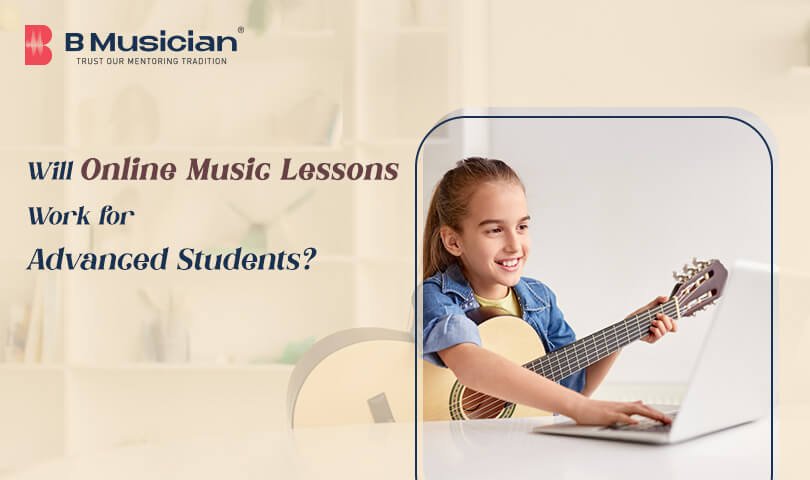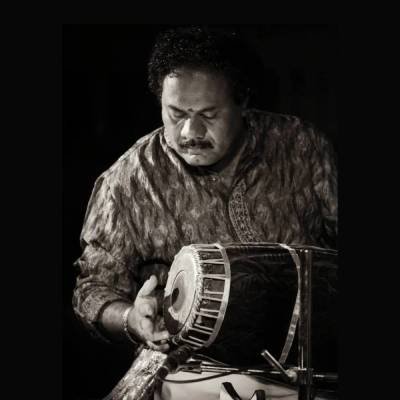Prelude
For many musicians, the journey from beginner to intermediate is filled with structured learning, guided practice, and step-by-step progression. However, when it comes to advanced topics like Manodharmam in Carnatic music, improvisation in Jazz, complex scales, intricate harmonies, or odd time signatures, students often feel that these concepts require in-person mentorship. The idea of learning such nuanced topics through an online medium may seem impractical or ineffective at first glance. But is that truly the case? Can an experienced musician or an advanced student truly benefit from an online music lesson? Let’s explore.
The Evolution of Online Learning in Music
Online music education has seen exponential growth over the last decade, driven by technological advancements, demand for flexible learning, and the increasing global exchange of musical knowledge. Initially, online learning was limited to beginner-friendly lessons or theory-based discussions, but it has now evolved into an immersive and interactive experience with high-definition video lessons, real-time virtual classes, and AI-assisted feedback mechanisms. Platforms such as MasterClass, Berklee Online, and niche-specific portals for Carnatic and Hindustani music have made advanced musical learning more accessible than ever before.
What Constitutes Advanced Music Lessons?
Advanced music education varies across genres, but the core principles remain rooted in-depth, technique, and creativity. Here’s a broad overview of what constitutes advanced lessons in different styles:
Western Music
- Advanced Harmony & Composition – Understanding polyphony, voice leading, and counterpoint
- Jazz & Blues Improvisation – Techniques for modal improvisation, bebop phrasing, and chromaticism
- Complex Time Signatures – Performing and composing in 7/8, 9/8, 11/8, etc.
- Orchestration & Arranging – Understanding how to write for different instruments in ensemble and orchestral settings
Carnatic Music
- Manodharmam – Improvisational aspects including Raga Alapana, Neraval, Kalpana Swaras, and Tanam
- Advanced Gamakas – Mastering nuances and microtonal variations in different ragas
- Complex Tala Structures – Learning advanced rhythm cycles beyond Adi Tala, such as Khanda Jathi Triputa or Misra Chapu
- Jathi & Korvais – Building intricate rhythmic patterns for advanced compositions
Hindustani Music
- Taan & Layakari – Mastering rapid melodic passages and rhythmic intricacies
- Raga Elaboration – Delving into deep Raga development and exploring emotional expressions
- Tarana & Dhrupad Improvisation – Advanced vocal techniques and rhythmic syllables
- Tabla & Percussion Mastery – Intricate compositions, Tihai patterns, and fusion applications
Why Online Learning Works for Advanced Musicians
Despite the common belief that online learning may not be sufficient for higher-level music education, the reality is that advanced students stand to gain significantly from the flexibility and resources available online. Here’s why:
1. Access to Global Experts
Online platforms allow advanced students to learn directly from maestros and experts they may never have access to in their geographic location. Masterclasses, one-on-one lessons, and workshops from renowned musicians can be game-changers for serious learners.
2. Flexibility in Learning
Advanced students often have packed schedules with performances, compositions, or teaching responsibilities. Online learning offers the flexibility to learn at their own pace, revisit lessons multiple times, and practice in a structured manner without location constraints.
3. Advanced Tools & Technology
With software like Soundtrap, Noteflight, or Carnatic Raga AI apps, students can analyze compositions, transcribe complex improvisations, and refine their understanding of intricate musical structures. Features such as slow-motion playback, looped practice, and AI-based pitch correction add immense value to online learning.
4. Interactive & Hybrid Learning Options
Many platforms offer a hybrid approach where students can take live one-on-one lessons alongside pre-recorded material. This allows them to receive real-time feedback while also supplementing their learning through video tutorials, exercises, and peer discussion forums.
5. Collaboration & Community Building
Advanced musicians thrive in a collaborative environment. Online platforms enable students to interact with peers from across the world, exchange ideas, and collaborate on projects, creating a rich and diverse learning ecosystem.
6. Documentation & Replay Value
Unlike in-person lessons where nuances might be forgotten, online classes often come with recorded sessions that students can refer to repeatedly. This helps in internalising advanced techniques and concepts at a comfortable pace.
Our platform, Bmusician, on principle and intention an innovative online music learning platform run by generations of musicians and industry experts, is designed to and aims to provide a seamless and highly effective learning experience—even for students pursuing advanced lessons. The platform integrates cutting-edge technology, structured pedagogy, and world-class faculty to make online learning as immersive and interactive as in-person training
Common Challenges in Online Advanced Music Learning and How to Tackle Them
While online learning for advanced students has its advantages, it does require discipline, a reliable internet connection, and the right set of tools. A structured approach, coupled with live mentorship and consistent practice, ensures that students can overcome any potential gaps and maximise their learning outcomes.
One of the major challenges advanced students face in online learning is the lack of immediate real-time correction from mentors, especially in areas requiring fine nuances like microtonal variations in Carnatic music or jazz improvisation phrasing. Without in-person guidance, students may develop unnoticed technical flaws or struggle with interpretation. To counter this, students should record their practice sessions and analyze them critically.
Additionally, seeking periodic live feedback from their mentors, even if through scheduled online video calls, can ensure continuous improvement and correction of mistakes before they become ingrained habits.
Another common issue is the potential lack of motivation and structured discipline when learning independently. Advanced lessons often require deep analytical thinking, patient practice, and self-driven exploration. Unlike a traditional learning environment where physical presence encourages focus, online learning can sometimes lead to distractions or gaps in consistency. To tackle this, students should create a dedicated learning space, set realistic goals, and maintain a structured practice log. Using digital tools such as metronomes, notation software, and backing tracks can further enhance engagement and keep practice sessions productive. Actively participating in online discussion forums and collaborating with peers can also help maintain enthusiasm and accountability in learning.
How Advanced Students Can Effectively Utilise Online Learning
- To make the most of online music learning platforms, advanced students must adopt a disciplined and structured approach.
- Setting clear learning goals is the first step—whether it’s mastering a complex tala pattern, refining improvisation skills, or understanding advanced harmony.
- Maintaining a dedicated practice schedule and actively applying the concepts learned in live classes or pre-recorded lessons is crucial.
- Additionally, taking notes, transcribing musical pieces, and experimenting with new techniques in real-world musical scenarios enhance retention and practical application.
- Furthermore, students should leverage interactive tools such as notation software, slow-down applications, and rhythm trainers to break down complex ideas systematically.
- Engaging with online communities, participating in peer discussions, and seeking personalised feedback from mentors can bridge the gap between theoretical understanding and real-world execution.
- By staying proactive, self-motivated, and consistent, advanced students can maximise the benefits of online learning and continue their musical evolution effectively.
Conclusion
Being well-informed about keyboard brands and their features empowers beginners to make the right choice and invest in an instrument that suits their needs. When starting to learn to play the keyboard, it is essential to consider factors such as touch-sensitive or weighted keys, built-in learning tools, and USB/MIDI connectivity, as these can greatly enhance the learning experience.
Many beginner-friendly models come with interactive features that make keyboard lessons for beginners more engaging and effective. A well-chosen keyboard fosters motivation, helps build essential skills, and ensures a smoother transition to more advanced playing.
By researching and comparing different models, beginners can confidently embark on their musical journey with an instrument that supports their growth, creativity, and long-term development.


















